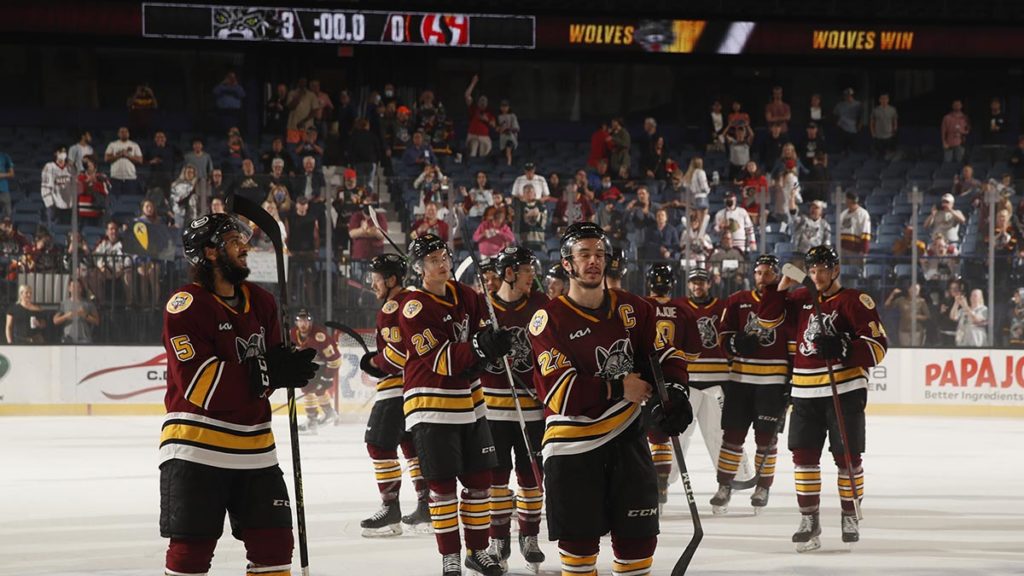 The Calder Cup Playoffs have been a journey for the Thunderbirds, one that brought about considerably more turbulence once the Eastern Conference Finals began.
The Calder Cup Playoffs have been a journey for the Thunderbirds, one that brought about considerably more turbulence once the Eastern Conference Finals began.
While Springfield swept Wilkes-Barre/Scranton and Charlotte in their first two series, Laval pushed the Thunderbirds to somewhere altogether different.
They found themselves facing elimination for the first time in the postseason following a disappointing Game 6 performance, but passed a Game 7 challenge from the Rocket to earn this appointment with Chicago.
While both the Penguins and Checkers had pressed Springfield at times, having to overcome Cayden Primeau in the Laval net severely tested the Thunderbirds. Having to do so in a Game 7 situation could only intensify that pressure.
“Laval pushed us right to the brink,” head coach Drew Bannister said. “Mentally, when you have a goalie on the other side that’s playing as well as he did, sometimes you can get away from your game plan. I didn’t think we did that in long spurts. I thought we stuck to what we did well and played within our identity.
“I think [Game 7] really showed well of what kind of team we are, especially down low and the tops of the circles in the first 40 minutes. The types of chances we were getting, we were eventually going to be able to score on. That’s our team, and that’s our makeup and that’s our identity.”
Bannister believes the Eastern Conference Finals test will serve them well.
“It certainly will make us a better team going forward,” he said. “We’ll be excited to [face] Chicago.”
 Wolves head coach Ryan Warsofsky and his club had their own fight to handle in the Western Conference Finals. They expected that battle from Stockton, and they more than got it.
Wolves head coach Ryan Warsofsky and his club had their own fight to handle in the Western Conference Finals. They expected that battle from Stockton, and they more than got it.
Now as Warsofsky prepares his team for the Thunderbirds, he does so with a team that is fresh off the best level of hockey it faced all season during the six-game Western Conference Finals with the Heat.
“[Stockton] was the best team we’ve seen all year,” Warsofsky said. “Each game was a different challenge. Each game could have gone one way or the other. I’m sure [Heat head coach] Mitch [Love] would say the same thing. It was a heavyweight bout, and we were taking big right hooks at each other. They gave us really everything we can handle and then some, so [I am] hoping we can learn from it and understand that this next series is going to be even more intense, more physical, more detailed.
“I think it’s really important we went through a little bit of a tough stretch there in that series.”
Chicago and Stockton employ similar up-tempo, aggressive styles that utilize strong transition games, a situation in which each team had to beat the other at the same style. But Springfield poses a much different challenge with a group of heavy, physical forwards that can wear down an opponent across a drawn-out playoff series. When the Thunderbirds are at their best, they avoid being pulled into transition-based hockey.
“I think they bring up a lot of challenges,” Warsofsky said of the Thunderbirds. “Again, good goaltending. Good experience on the back end and guys that can move pucks. And up front they’re heavy. I think it’s going to be crucial that when we don’t have the puck we’re really dialed in and focused and playing with our structure.
“They’re going to be a good challenge for us, similar to Stockton. Another really good hockey club that doesn’t really have a weakness in my opinion.”
― Patrick Williams



